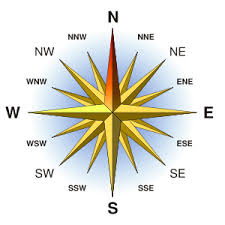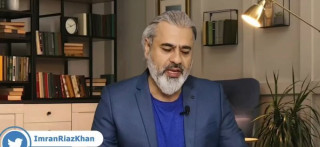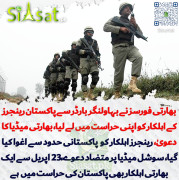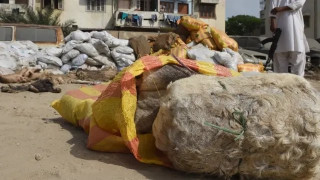crankthskunk
Chief Minister (5k+ posts)
Deviant views on "Awalyia Allah SWT" in the Sub-continent
Brother modern fakir, first of all the long article you have posted from Correctislamicfaith.com is written by Mir Asedullah Quadri. We all know what Qadiri means and what are their religious affiliations.
Let me say it clearly, I do not belong to any sect, sects are categorically forbidden by Allah SWT in the Holy Quran. Therefore, my answer does not support or is against any sects prevailing in the sub-continent.
I am writing purely on the basis of the evidence displayed in the Holy Quran. There is a huge misconception spread in the Sub-Continent on the word, Awalia Allah.
Lets look at the evidence from the Holy Quran.
وَمَا تَكُونُ فِي شَأْنٍ وَمَا تَتْلُو مِنْهُ مِن قُرْآنٍ وَلاَ تَعْمَلُونَ مِنْ عَمَلٍ إِلاَّ كُنَّا عَلَيْكُمْ شُهُودًا إِذْ تُفِيضُونَ فِيهِ وَمَا يَعْزُبُ عَن رَّبِّكَ مِن مِّثْقَالِ ذَرَّةٍ فِي الأَرْضِ وَلاَ فِي السَّمَاء وَلاَ أَصْغَرَ مِن ذَلِكَ وَلا أَكْبَرَ إِلاَّ فِي كِتَابٍ مُّبِينٍ (10:61)
10:61 AND IN whatever condition thou mayest find thyself, [O Prophet,] and whatever discourse of this [divine writ] thou mayest be reciting, and whatever work you [all, O men,] may do -[remember that] We are your witness [from the moment] when you enter upon it: for, not even an atom's weight [of whatever there is] on earth or in heaven escapes thy Sustainer's knowledge; and neither is there anything smaller than that, or larger, but is recorded in [His] clear decree.
First thing to notice in 10:61, it is addressing the Holy Prophet SAW directly. We all should agree that there could be no better friend and helper of Allah SWT than our beloved Prophet Muhammad SAW (may peace and blessing of Allah SWT, all His SWTs Angels and all the humans be upon him) from the inception of this universe until its end, if these were the real meaning of the Phrase Awaliya Allah so often misused by some.
The verse clearly says, whatever work we human do good or bad, it is recorded in a clear decree of Allah SWT, denoted as ila fi Kitab-un-Mubeen.
Now lets look at 10:62 which mentions Awalia of Allah SWT.
أَلا إِنَّ أَوْلِيَاء اللّهِ لاَ خَوْفٌ عَلَيْهِمْ وَلاَ هُمْ يَحْزَنُونَ (10:62)
10:62 Oh, verily, they who are close to God - no fear need they have, and neither shall they grieve:
Those who are close to God, i.e. with good deeds, no fear they should have, neither shall they grieve, because their deeds are recorded in a clear decree of Allah SWT, and on the day of the Judgement they would be rewarded accordingly.
This word is misconstrues significantly in the Sub-continent to mean some people who claimed or people bestowed on them title of Awalia Allah. Where does it decreed in the Holy Quran Allah (SWT) calls Sufi Sheikhs as His friends and praise them in Quran as claimed by Asedullah at the start of his article?
These blatant lies used by many deviant people who twist the meanings of the Holy Quran for their own benefits and try to impose on others the meanings which is not in the Holy Quran. The verse is clear it is for any Muslim who does good deeds, his/her good deeds would be recorded in preserved record or book and he/she should have no fear from the Day of Judgement nor shall they grieve on that day. It does not say about any person(s) or sheikhs, it is generic for all the Muslims who have good deeds recorded during their life on earth.
Let me explain the verb waliya from which noun wali, plural awliya is dervided. It signifies Primarily closeness or nearness. As the verse 10:62 made abundantly clear, Muslims nearness to Allah SWT because of their deeds.
Thus in the Holy Quran God is spoken to in terms of as being near unto (wali) those who believe and perform good deeds. As spoken in 2:257
اللّهُ وَلِيُّ الَّذِينَ آمَنُواْ يُخْرِجُهُم مِّنَ الظُّلُمَاتِ إِلَى النُّوُرِ وَالَّذِينَ كَفَرُواْ أَوْلِيَآؤُهُمُ الطَّاغُوتُ يُخْرِجُونَهُم مِّنَ النُّورِ إِلَى الظُّلُمَاتِ أُوْلَـئِكَ أَصْحَابُ النَّارِ هُمْ فِيهَا خَالِدُونَ (2:257)
2:257 God is near unto those who have faith, taking them out of deep darkness into the light - whereas near unto those who are bent on denying the truth are the powers of evil that take them out of the light into darkness deep: it is they who are destined for the fire, therein to abide.
I want all those on this forum who are easily swayed away by the articles or books of deviant people who have divided the religion of Islam in to sects and those who issues their edits against anyone who does not subscribes to their deviant views or lies, to pay attention to the Verse of the Holy Quran 2:257 I quoted above.
In the verse, Allah SWT decreed He SWT is the Wali i.e. near to those who have faith. So why people call human as Wali when it is clear from the verse that it is Allah SWT who decreed He SWT is Wali i.e. close to those who believe in Him, i.e. Muslims with good characters and deeds.
While near or close (again Awuliahum is used) to those who are bent on denying the truth i.e. the message of the Holy Quran and Islam are the forces of the darkness.
The meanings which are normally associated with the term Wali i.e. helper, friend, protector, guardian, etc these secondary meanings cannot be define without offending against the reverence of Allah SWT.
Therefore the term Awaliya Allah can only be best render as those who are close to God in the sense their being always conscious of Him SWT. Those who do good deeds and stay away from what is prohibited by Allah SWT.
Almost all the classical commentators of the Holy Quran supported this meaning.
Unfortunately, as I explained the deviant views started to prevail in the sub-continent in last 150-250 years because of influence and interference by the British according to their policy of divide and rule.
In the process people who have committed worst kind of Shirk and some of them even claimed Equality with Allah SWT (nauzbillah) are revered as Awaliya Allah.
On their name their graves are worshiped where people perform Shirk on daily basis. All these practices, are the precise reasons Allah SWT warned in the Holy Quran and Decreed, only those who believe and do righteous deeds are near to Allah SWT due to their characters and deeds.
May Allah SWT give you wisdom to read and understand the Holy Quran.
In the Holy Quran, Allah SWT also decreed,
وَلَقَدْ يَسَّرْنَا الْقُرْآنَ لِلذِّكْرِ فَهَلْ مِن مُّدَّكِرٍ (54:40)
54:40 Hence, indeed, We made this Quran easy to bear in mind: who, then, is willing to take it to heart?
Who would you believe Allah SWT who Decreed He SWT has made it easy to bear in mind or those who insist you need a Teacher to understand the Holy Quran? You decide.
And Allah SWT knows the best.
Brother modern fakir, first of all the long article you have posted from Correctislamicfaith.com is written by Mir Asedullah Quadri. We all know what Qadiri means and what are their religious affiliations.
Let me say it clearly, I do not belong to any sect, sects are categorically forbidden by Allah SWT in the Holy Quran. Therefore, my answer does not support or is against any sects prevailing in the sub-continent.
I am writing purely on the basis of the evidence displayed in the Holy Quran. There is a huge misconception spread in the Sub-Continent on the word, Awalia Allah.
Lets look at the evidence from the Holy Quran.
وَمَا تَكُونُ فِي شَأْنٍ وَمَا تَتْلُو مِنْهُ مِن قُرْآنٍ وَلاَ تَعْمَلُونَ مِنْ عَمَلٍ إِلاَّ كُنَّا عَلَيْكُمْ شُهُودًا إِذْ تُفِيضُونَ فِيهِ وَمَا يَعْزُبُ عَن رَّبِّكَ مِن مِّثْقَالِ ذَرَّةٍ فِي الأَرْضِ وَلاَ فِي السَّمَاء وَلاَ أَصْغَرَ مِن ذَلِكَ وَلا أَكْبَرَ إِلاَّ فِي كِتَابٍ مُّبِينٍ (10:61)
10:61 AND IN whatever condition thou mayest find thyself, [O Prophet,] and whatever discourse of this [divine writ] thou mayest be reciting, and whatever work you [all, O men,] may do -[remember that] We are your witness [from the moment] when you enter upon it: for, not even an atom's weight [of whatever there is] on earth or in heaven escapes thy Sustainer's knowledge; and neither is there anything smaller than that, or larger, but is recorded in [His] clear decree.
First thing to notice in 10:61, it is addressing the Holy Prophet SAW directly. We all should agree that there could be no better friend and helper of Allah SWT than our beloved Prophet Muhammad SAW (may peace and blessing of Allah SWT, all His SWTs Angels and all the humans be upon him) from the inception of this universe until its end, if these were the real meaning of the Phrase Awaliya Allah so often misused by some.
The verse clearly says, whatever work we human do good or bad, it is recorded in a clear decree of Allah SWT, denoted as ila fi Kitab-un-Mubeen.
Now lets look at 10:62 which mentions Awalia of Allah SWT.
أَلا إِنَّ أَوْلِيَاء اللّهِ لاَ خَوْفٌ عَلَيْهِمْ وَلاَ هُمْ يَحْزَنُونَ (10:62)
10:62 Oh, verily, they who are close to God - no fear need they have, and neither shall they grieve:
Those who are close to God, i.e. with good deeds, no fear they should have, neither shall they grieve, because their deeds are recorded in a clear decree of Allah SWT, and on the day of the Judgement they would be rewarded accordingly.
This word is misconstrues significantly in the Sub-continent to mean some people who claimed or people bestowed on them title of Awalia Allah. Where does it decreed in the Holy Quran Allah (SWT) calls Sufi Sheikhs as His friends and praise them in Quran as claimed by Asedullah at the start of his article?
These blatant lies used by many deviant people who twist the meanings of the Holy Quran for their own benefits and try to impose on others the meanings which is not in the Holy Quran. The verse is clear it is for any Muslim who does good deeds, his/her good deeds would be recorded in preserved record or book and he/she should have no fear from the Day of Judgement nor shall they grieve on that day. It does not say about any person(s) or sheikhs, it is generic for all the Muslims who have good deeds recorded during their life on earth.
Let me explain the verb waliya from which noun wali, plural awliya is dervided. It signifies Primarily closeness or nearness. As the verse 10:62 made abundantly clear, Muslims nearness to Allah SWT because of their deeds.
Thus in the Holy Quran God is spoken to in terms of as being near unto (wali) those who believe and perform good deeds. As spoken in 2:257
اللّهُ وَلِيُّ الَّذِينَ آمَنُواْ يُخْرِجُهُم مِّنَ الظُّلُمَاتِ إِلَى النُّوُرِ وَالَّذِينَ كَفَرُواْ أَوْلِيَآؤُهُمُ الطَّاغُوتُ يُخْرِجُونَهُم مِّنَ النُّورِ إِلَى الظُّلُمَاتِ أُوْلَـئِكَ أَصْحَابُ النَّارِ هُمْ فِيهَا خَالِدُونَ (2:257)
2:257 God is near unto those who have faith, taking them out of deep darkness into the light - whereas near unto those who are bent on denying the truth are the powers of evil that take them out of the light into darkness deep: it is they who are destined for the fire, therein to abide.
I want all those on this forum who are easily swayed away by the articles or books of deviant people who have divided the religion of Islam in to sects and those who issues their edits against anyone who does not subscribes to their deviant views or lies, to pay attention to the Verse of the Holy Quran 2:257 I quoted above.
In the verse, Allah SWT decreed He SWT is the Wali i.e. near to those who have faith. So why people call human as Wali when it is clear from the verse that it is Allah SWT who decreed He SWT is Wali i.e. close to those who believe in Him, i.e. Muslims with good characters and deeds.
While near or close (again Awuliahum is used) to those who are bent on denying the truth i.e. the message of the Holy Quran and Islam are the forces of the darkness.
The meanings which are normally associated with the term Wali i.e. helper, friend, protector, guardian, etc these secondary meanings cannot be define without offending against the reverence of Allah SWT.
Therefore the term Awaliya Allah can only be best render as those who are close to God in the sense their being always conscious of Him SWT. Those who do good deeds and stay away from what is prohibited by Allah SWT.
Almost all the classical commentators of the Holy Quran supported this meaning.
Unfortunately, as I explained the deviant views started to prevail in the sub-continent in last 150-250 years because of influence and interference by the British according to their policy of divide and rule.
In the process people who have committed worst kind of Shirk and some of them even claimed Equality with Allah SWT (nauzbillah) are revered as Awaliya Allah.
On their name their graves are worshiped where people perform Shirk on daily basis. All these practices, are the precise reasons Allah SWT warned in the Holy Quran and Decreed, only those who believe and do righteous deeds are near to Allah SWT due to their characters and deeds.
May Allah SWT give you wisdom to read and understand the Holy Quran.
In the Holy Quran, Allah SWT also decreed,
وَلَقَدْ يَسَّرْنَا الْقُرْآنَ لِلذِّكْرِ فَهَلْ مِن مُّدَّكِرٍ (54:40)
54:40 Hence, indeed, We made this Quran easy to bear in mind: who, then, is willing to take it to heart?
Who would you believe Allah SWT who Decreed He SWT has made it easy to bear in mind or those who insist you need a Teacher to understand the Holy Quran? You decide.
And Allah SWT knows the best.

































